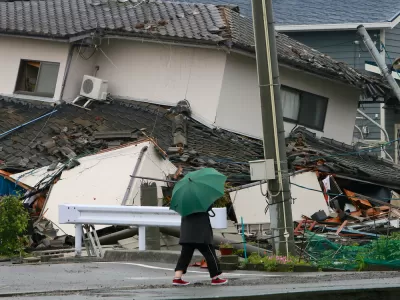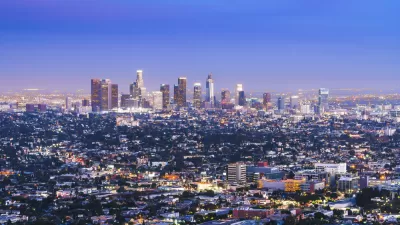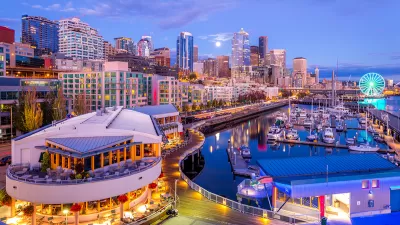Visitors to Japan’s theme-park-style disaster preparation centers can experience simulated quakes, typhoons, and fires. Perhaps a similar idea would be helpful in part of the United States?

Sandi Doughton reports:
Guided by the philosophy that experience is the best teacher, Japan wants its citizens to know what it will feel like when the ground under their feet starts to heave — and how to protect themselves. So cities across the country have constructed disaster education centers that combine theme-park-style simulations with sober lessons in survival.
Many of the more than 60 centers feature large shake tables where visitors can ride out fake quakes as powerful as the real thing. In some centers, visitors navigate life-size dioramas of crushed cars and teetering power poles while being quizzed on the best response to dangerous situations. Typhoons, floods and fires get hands-on treatment as well.
Doughton's coverage not only explains the methods and impact of the Japanese centers, but also catches up on plans to bring a similar center to the Seattle area. After the Seattle City Council commissioned a study of the Japanese centers in 2007, a "proposal emerged to build a facility at Seattle Center in conjunction with the Pacific Science Center." The recession derailed those plans, but advocates are still working to make that vision a reality in the area.
FULL STORY: Japan has disaster theme parks where you can ride out fake earthquakes. Should we try it in Seattle?

Maui's Vacation Rental Debate Turns Ugly
Verbal attacks, misinformation campaigns and fistfights plague a high-stakes debate to convert thousands of vacation rentals into long-term housing.

Planetizen Federal Action Tracker
A weekly monitor of how Trump’s orders and actions are impacting planners and planning in America.

In Urban Planning, AI Prompting Could be the New Design Thinking
Creativity has long been key to great urban design. What if we see AI as our new creative partner?

King County Supportive Housing Program Offers Hope for Unhoused Residents
The county is taking a ‘Housing First’ approach that prioritizes getting people into housing, then offering wraparound supportive services.

Researchers Use AI to Get Clearer Picture of US Housing
Analysts are using artificial intelligence to supercharge their research by allowing them to comb through data faster. Though these AI tools can be error prone, they save time and housing researchers are optimistic about the future.

Making Shared Micromobility More Inclusive
Cities and shared mobility system operators can do more to include people with disabilities in planning and operations, per a new report.
Urban Design for Planners 1: Software Tools
This six-course series explores essential urban design concepts using open source software and equips planners with the tools they need to participate fully in the urban design process.
Planning for Universal Design
Learn the tools for implementing Universal Design in planning regulations.
planning NEXT
Appalachian Highlands Housing Partners
Mpact (founded as Rail~Volution)
City of Camden Redevelopment Agency
City of Astoria
City of Portland
City of Laramie





























